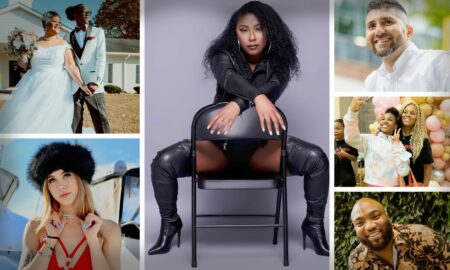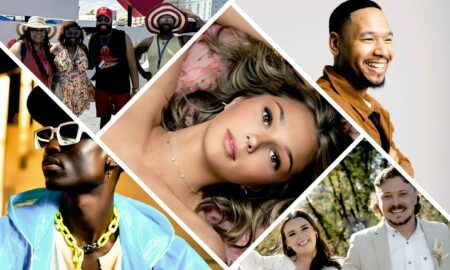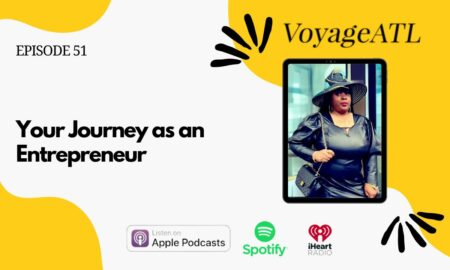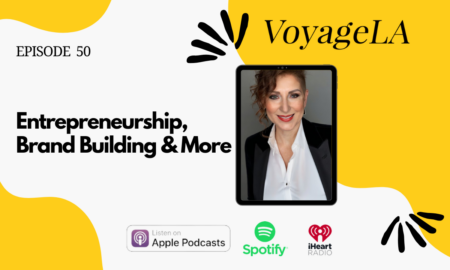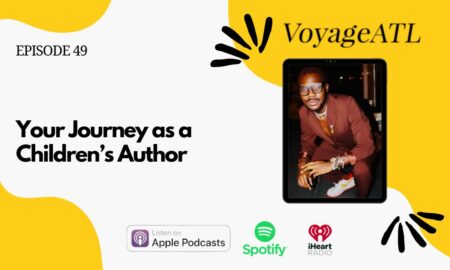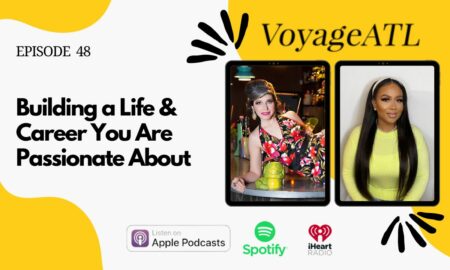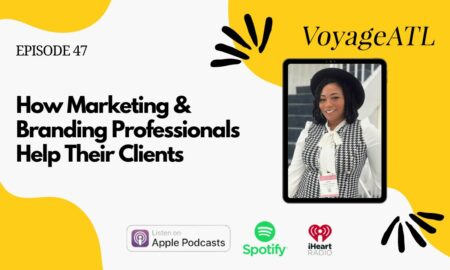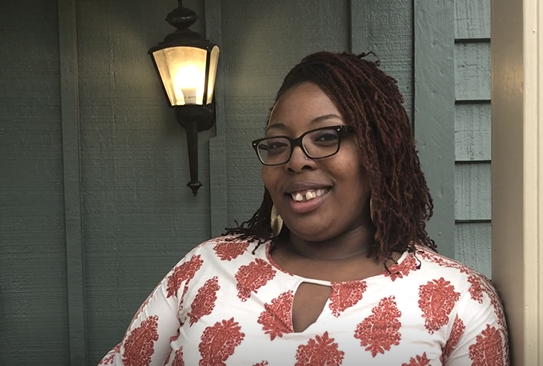

Today we’d like to introduce you to Wanda Swan.
Wanda, let’s start with your story. We’d love to hear how you got started and how the journey has been so far.
There was never really a start as so much as this is how I showed up here. Fortunately for some, unfortunately for others, I’ve always been loud against injustice and mostly always in trouble about it. I’m from Holmes County, Mississippi, one of the poorest counties in the state, and also where I always credit my initial training in social justice advocacy. In a once-agrarian town with no stoplights till this day (I still love you though, Goodman!) that is still trying to find its legs and place within the larger industrial society, progression can come slowly, but it’s steady. Holmes County, MS, also has historical Civil Rights significance with its well-known activism combating voter suppression. The foot soldiers of the Mississippi Freedom Summers became my elementary school teachers who infused community empowerment within every lesson. This intersection of low socio-economic status, various health disparities, violence, and community uplift became the backdrop to my childhood.
I’ve used all these experiences to highlight the reality of life for folks who look like me with the goal of validating the lives and narratives of Black people. My story is one of a country girl who “done good,” went to college, fell in a career and taking everyday to figure out some new adventure. I’m a nationally-recognized victim’s advocate and sexual assault prevention strategist by trade but also a Student Affairs professional, entrepreneur and co-founder of the digital social movement Mother Wit.
We’re always bombarded by how great it is to pursue your passion, etc – but we’ve spoken with enough people to know that it’s not always easy. Overall, would you say things have been easy for you?
Smooth, no, but it’s definitely been an interesting ride into this world of entrepreneurship and movement building. I knew early on in my career that real change meant combining these two pieces to introduce conscious dialogue and strategies to do the work I most love: ending violence, prioritizing survivors, and providing historically-accurate accounts of Black Women shaping the world as we know it. Those three components, alone, prove overwhelming because of it is often the road less taken. I’m electing to talk about how violence, direct or indirect, is related to oppression and how the experience and practice of oppression is killing us. That’s not everybody’s jam, but I work hard to deliver that content (through workshops, speaking engagements, training, etc.) in a way that is relatable and steeped in those core lessons I’d learned in Mississippi.
We’d love to hear more about your business.
I have both nonprofit and for-profit endeavors that keep me busy and make me happy. My for-profit work is Seed of the Free, LLC., an umbrella company for several initiatives dedicated to truth-telling and story-sharing. It includes “Petty Truths,” a line of paper goods and educational toys dedicated to unraveling oppression using a thin veil of comedy and “Pettina,” a strong, Black woman lead character. The everyday adventures of Pettina and friends with other neighborhood characters like “White Feminism,” “Pate Triarchy,” and “Hotep Hakeem” serve as a teaching tool and help folks to better grasp both covert and overt examples of oppression.
I am also the creator and facilitator of Anti-Oppressive Advocacy training for local, state and federal entities dedicated to ending violence and/or supporting survivors of violence. Within this capacity, I host learning sessions that explore the intersection of bias and service provision with providers who support historically-marginalized populations. This training introduces a perspective that allows for transparent dives into the socio-historical impact of violence and traditional avenues of support for these communities.
Additionally, I am CEO of The Swan Center for Advocacy & Research, Inc., a Georgia-based nonprofit that supports Black survivors of interpersonal violence by prioritizing survivor narratives and providing intervention, prevention, and technical assistance to local and larger communities.
Another initiative, Once Upon A Patriarchy, is a podcast I co-host with Shannan Palma, a fairy tale historian and higher ed faculty department head, that reads in between the lines of some of Disney’s most famous stories to critique their signature formula and its impact on marginalized communities. We discuss harmful aspects of the formula with guests and encourage them to give permission for them to rewrite the story to better support larger communities of Disney consumers.
Lastly, Mother Wit is a movement dedicated to the radical love of Black women and the global combat of anti-black rhetoric. My co-founder, Khye Tyson, and I are curating a multimedia platform that asks the simple question, “Have you thanked a Black woman today?” Admirers of Black women are asked to submit appreciation stories highlighting them for their everyday ingenuity and historical leadership.
I am most proud of my ability to create various streams of expression and outreach that supports the amplification of the disenfranchised. Each initiative is an arm of work that prioritizes human restoration. Being trusted by my community to hold these truths is also a source of pride for me.
What sets me apart from others in the field of violence prevention and within the space of entrepreneurship boils down to three main components: (1) I hold a positive bias for Black women and Black folks in general. I believe their stories of trauma and am interested in teaching other service providers how to support them and other marginalized people; (2) I don’t shy away from amplifying Black stories in traditionally non-Black spaces to normalize presence and humanity; (3) I take the Mississippi backwoods with me everywhere I go because it was my first lesson in human kindness, race politics, feminism, and the Sacred. Everything I know about movement building I learned before I left the country. Nothing surprises me.
What were you like growing up?
I was the nosey kid who questioned everything and everybody. It was hard for me to take people’s word; I needed to know how we got here so,naturally, I got a lot of whuppings. I was also pretty self-aware and a little mouthy. I remember telling an uncle, “You can’t talk to me like that. I’m a person and there’s just a certain way you are supposed to treat people. Now I’m gonna go home because I just don’t think I’m gonna let you give me a whupping today.” HAH! Ridiculous. I was, maybe, eight years old at the time. God bless my mama.
On the flip side, I was also someone who was good at sitting with the suffering. That’s how my mom described it. I was a good listener and a problem solver. I loved puzzles and riddles and figuring out how to move mountains without anyone noticing.
My biggest interest were reading because I was an introvert. Being a part of a big family (60+ cousins) made it difficult to conserve energy, but reading and writing was definitely an escape.
Lastly, I was country to the bone. I was a tomboy who loved being outside barefoot running across rocks and playing on the railroad tracks. Good times.
Contact Info:
- Website: https://www.wanswan.com
- Phone: 6623129982
- Email: wan@wanswan.com
- Instagram: https://www.instagram.com/seed_of_the_free_llc
- Facebook: https://www.facebook.com/muvawit
- Twitter: https://www.twitter.com/petty_truths
- Other: https://www.onceuponapatriarchy.com







Suggest a story: VoyageATL is built on recommendations from the community; it’s how we uncover hidden gems, so if you or someone you know deserves recognition please let us know here.

